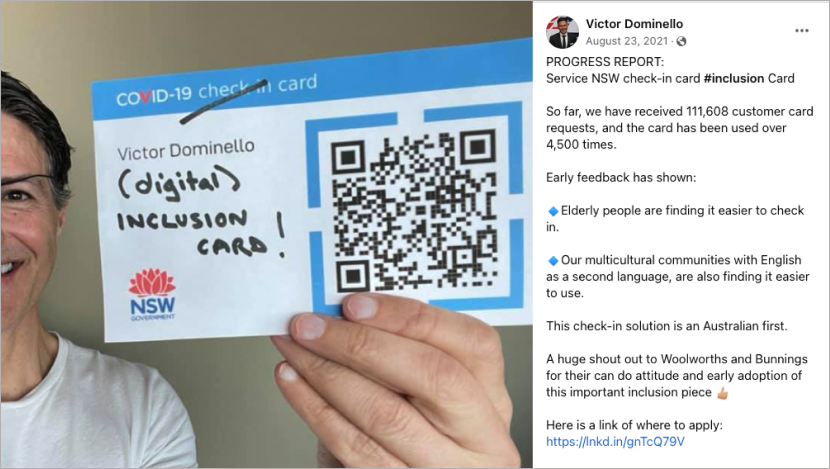Covid safe check in
Client
Service NSW
Role
Senior product designer
The challenge
Make the check-in process more inclusive while also being efficient for businesses. A delivered solution in 5 weeks.
The process
Understanding the problem
The first step was understanding the users that were having difficulty with the check-in process. This was predominantly older individuals lacking a smart phone or the know-how to use the app.
The work-around was a paper-based alternative, which had several problems.
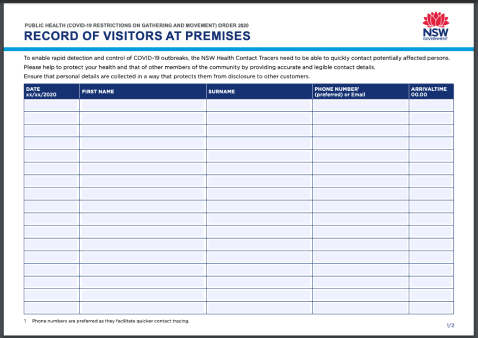
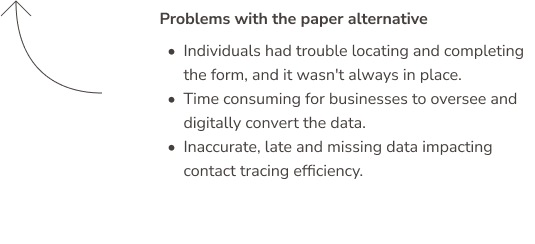
Solution ideation
The broad solution developed through stakeholder and technical discussions was for individuals to show a personal QR code when checking in.
This required two parts to solve for:
- How do we enable residents to access a personal QR code?
- How dow we enable scanning of personal QR codes during check-in?
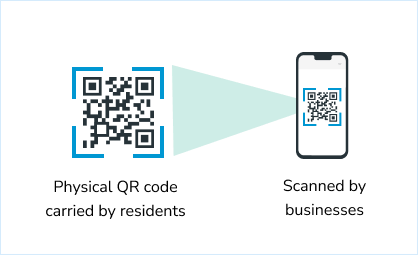
High-level task mapping
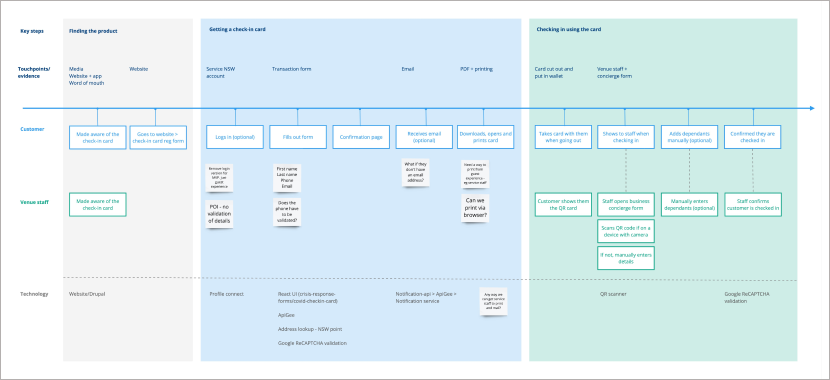
Initial iteration
Leveraging ideation and co-design sessions, we developed an initial solution for user testing. While I steered the design and discovery, our squad which included engineers and a product manager, were integral to this collaborative process.
An early concept flow of the solution
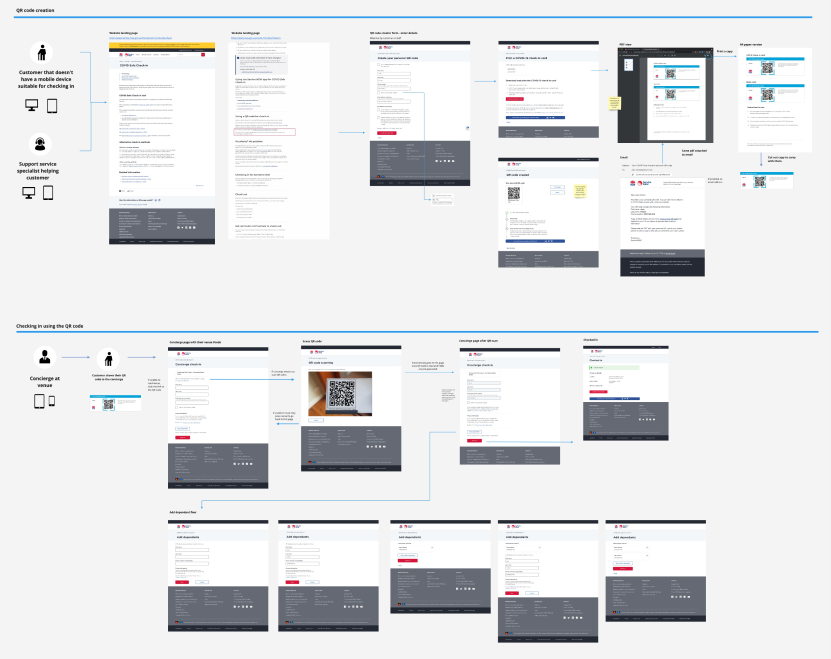
Testing
Following internal feedback, I created a Figma prototype and test plan. I was the lead interviewer and we tested on 3 groups of participants:
- Group 1: Customers
- Group 2: Venues
- Group 3: Service centre staff
Screens from the prototype
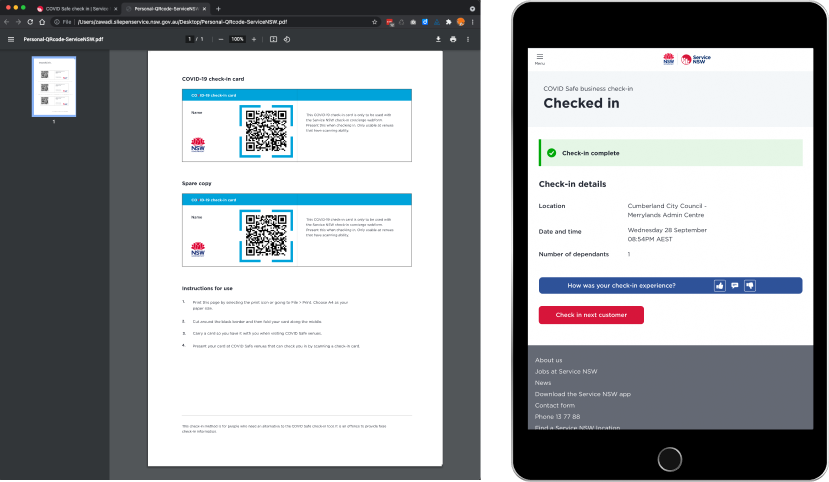
Capturing and synthesising feedback from testing
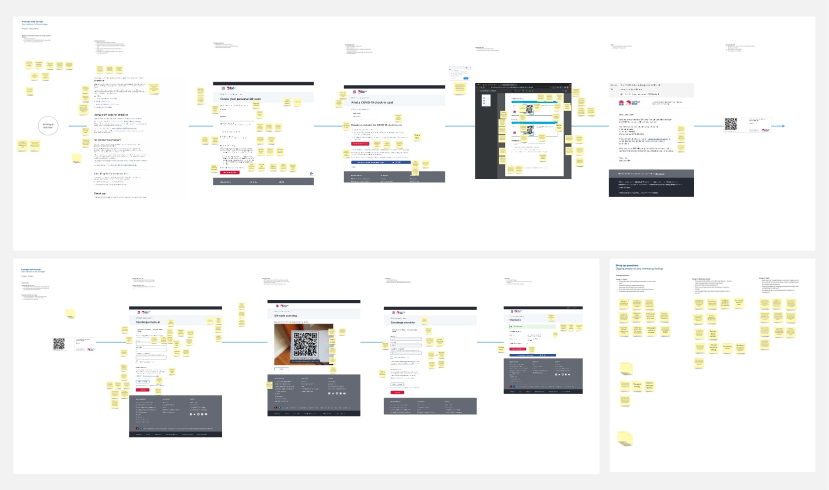
PDF of insights summarised for internal distribution
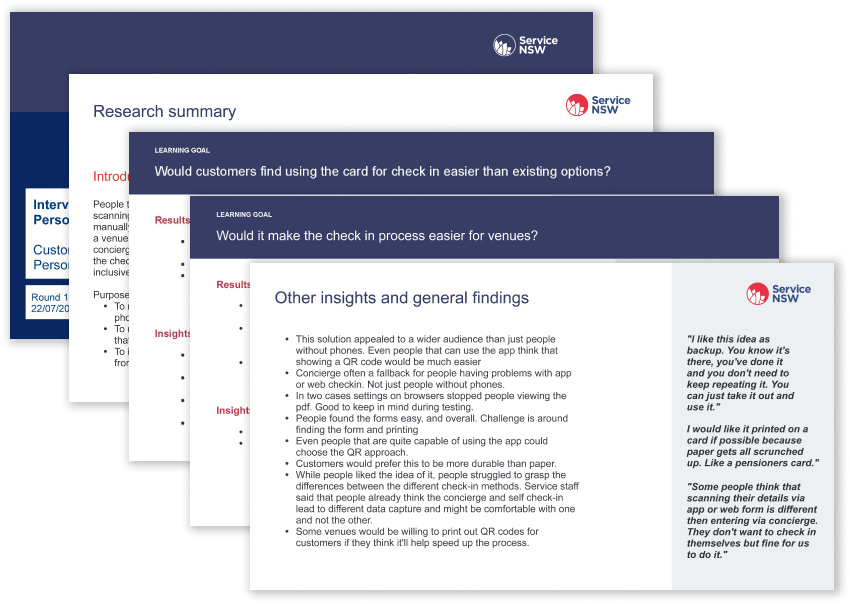
Solution iteration
From the testing we confirmed a demand for the proposed solution from all our user groups. One significant barrier that we identified was the ability to print at home or at a Service Centre.
This resulted in a decision to provide the option of physical cards delivered by post.
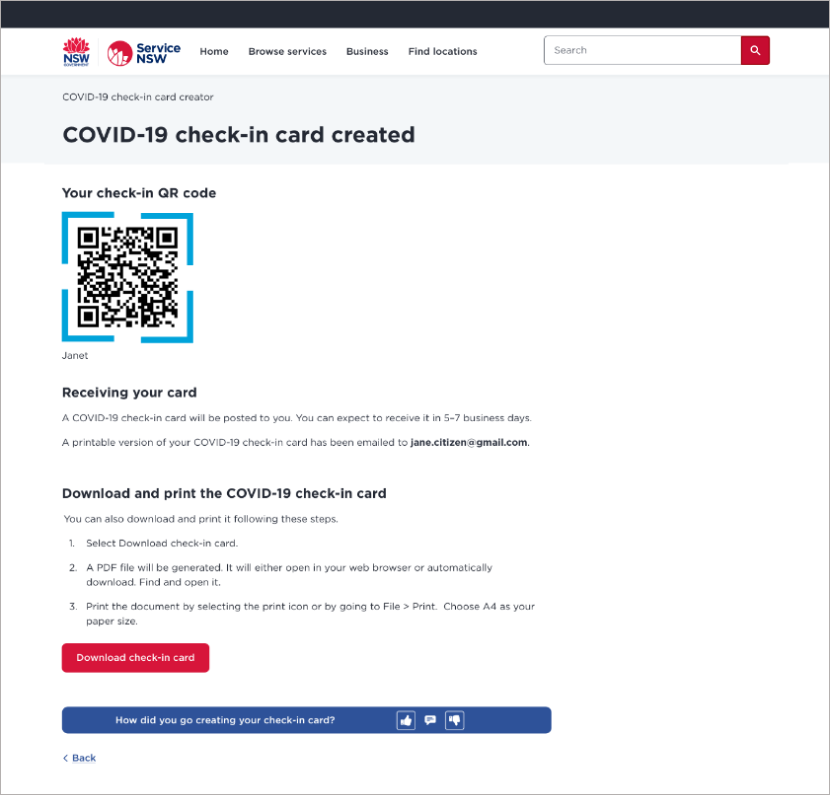
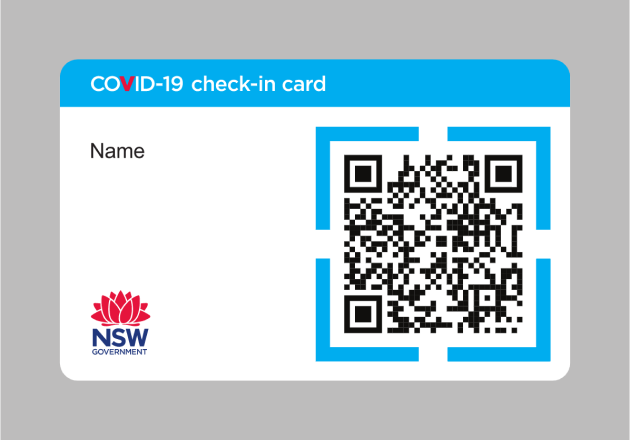
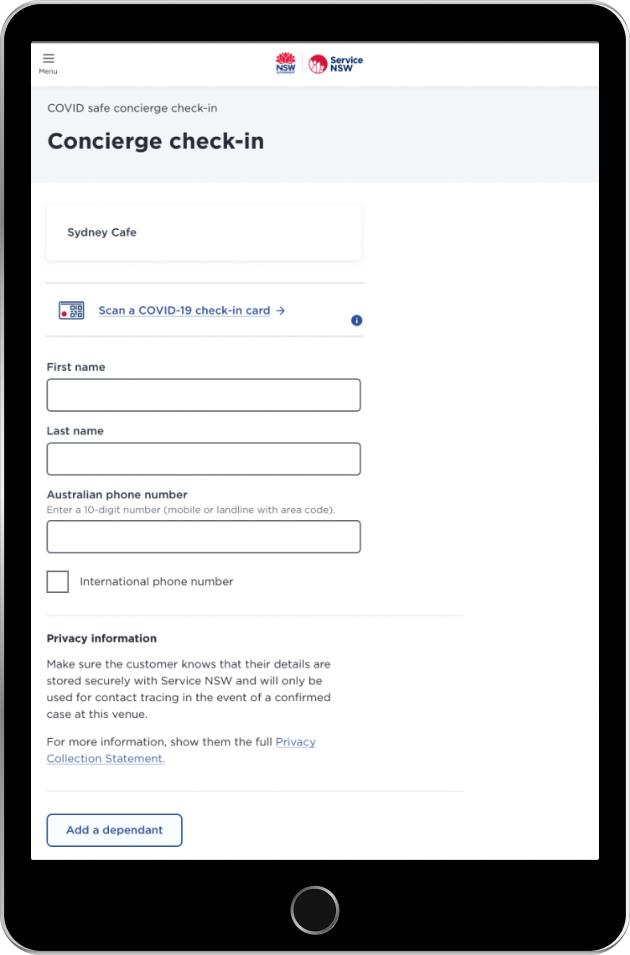
The outcome
We successfully deployed the product within the target timeframe. In the first 4 weeks, nearly 150k people signed up for a card. There were 2.5 million check-ins using the card in first 4 months, averaging around 20k per day.
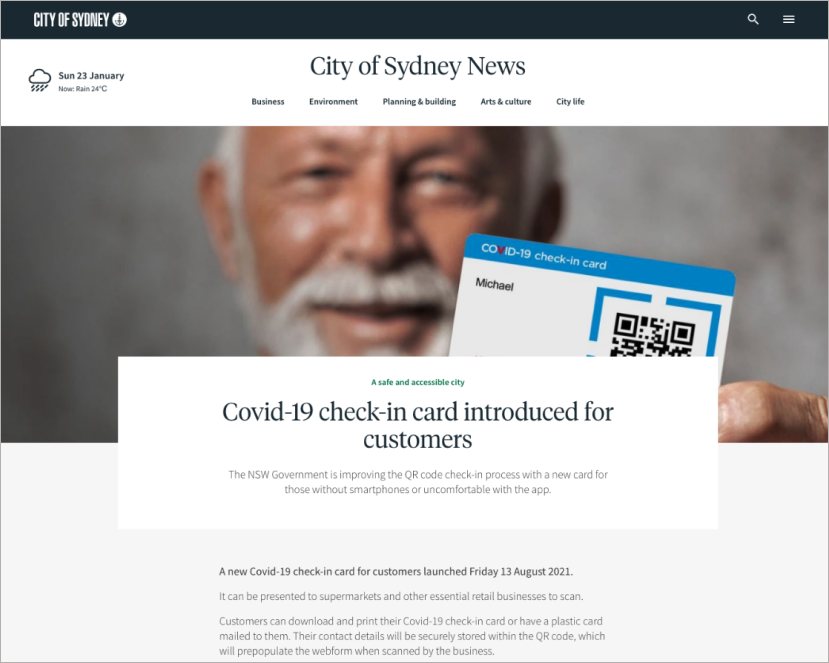
Learnings
An unexpected result was the uptake by people outside our expected user profile. People capable of app-based check-ins were opting for card check-in. There were several reasons for this, but one area for enhancement was the communication strategy. A more unified focus on user experience across our marketing and product domains could have better aligned user expectations.
Another area of reflection was early in the ideation phase. The solution as a physical QR code was arrived early. This restricted exploration of alternatives before progressing to implementation ideation.
